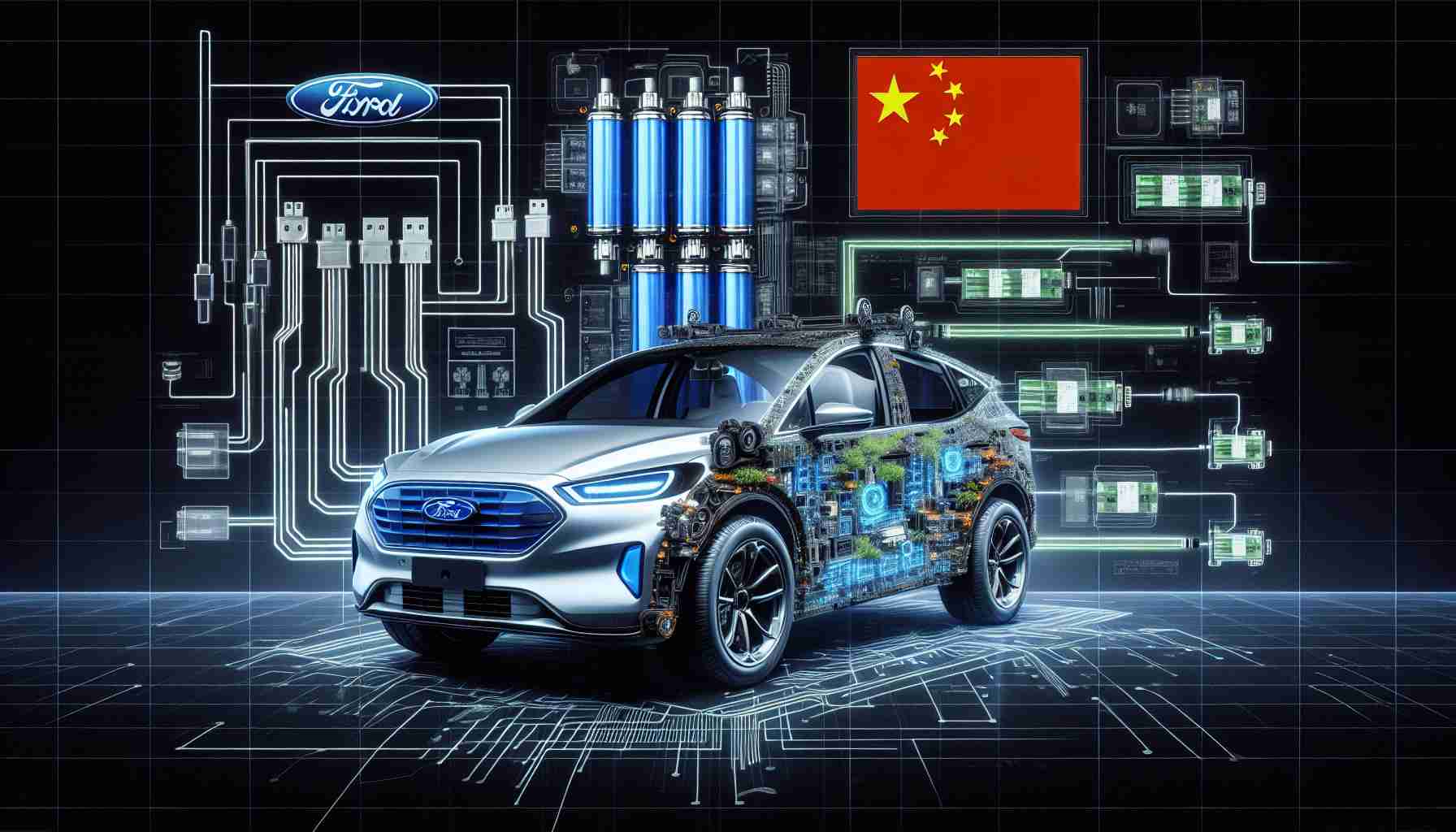- Tesla experiences a significant sales decline, with Model 3 sales dropping 60% and overall EV sales down 33%, totaling 739 units in January 2025.
- Market share in Australia faces pressure from Chinese competitors and diminishing state rebates.
- Model Y offers a positive note with a 21% increase in sales amid broader challenges.
- CEO Elon Musk’s controversial actions contribute to a 26% drop in Tesla’s market value and drive 59% of EV enthusiasts to consider other brands.
- Rival Polestar also sees a 45% decrease in sales but remains hopeful about future model releases.
- The EV market demands continuous innovation and adaptation, with Tesla at a critical juncture requiring strategic reinvention.
Tesla, the pioneering titan of electric vehicles, is in a gripping battle for dominance in the rapidly evolving EV landscape. January 2025 sales figures delivered an eye-opening reality check—a drastic 60% nosedive in Model 3 sales compared to the previous year has sent shockwaves through the industry. Overall, Tesla’s EV sales slumped by 33%, barely reaching 739 units.
The once unassailable stronghold on the Australian market, with a previous market share of 60%, is being challenged by aggressive competitors from China and the dwindling allure of state rebates. Amid the shifting sands, Tesla’s Model Y shines with a 21% sales surge, offering a beacon of hope amid adversity.
Externally, Tesla’s brand is weathering storms of its own. The controversial maneuvers of CEO Elon Musk have tarnished Tesla’s image, leading to a 26% market value plunge and pushing 59% of EV enthusiasts to explore other brands. The Tesla experience once associated with innovation and prestige now grapples with the shadows cast by its polarizing leader—a stark reminder of the potent sway of public perception.
Meanwhile, rival Polestar faces its own hurdles with a 45% dip in sales yet looks forward with optimism for fresh model launches. These dynamics underscore the volatile dance of the EV market—a landscape that demands relentless innovation and rapid adaptation.
Tesla stands at a crossroads, faced with the urgent need to reinvent itself amidst swirling competition and shifting consumer preferences. Will it reclaim its throne, or is this the dawn of a new era in the EV domain? The answers lie in strategic pivots and audacious advancements. The race is on, and the stakes have never been higher.
Tesla at a Crossroads: Can the Electric Giant Charge Back to the Top?
In a surprising turn of events, Tesla, the once-undisputed leader of the electric vehicle (EV) sector, faces significant challenges that threaten its longstanding dominance. Recent sales data from January 2025 reveals a dramatic 60% plunge in Model 3 sales compared to the previous year, with overall Tesla EV sales dipping by 33%, barely reaching 739 units. As the company grapples with these declines, the international EV landscape is dynamically evolving, fueled by escalating competition and changing consumer preferences.
How is Tesla Responding to Declining Sales and Market Challenges?
With its substantial sales slump, Tesla is actively seeking strategies to combat growing competition and market pressures.
1. Product Diversification and Innovation: Tesla is intensifying efforts to innovate beyond its existing lineup. The Model Y’s 21% sales surge is a testament to its potential to be a cornerstone in Tesla’s recovery strategy, showcasing strong market resonance even amid adversity.
2. Global Expansion and Market Customization: Tesla is focusing on global expansion with manufacturing plants in strategic locations, which could potentially diversify its revenue streams and reinforce supply chain stability.
3. Sustainability and Technology: Emphasizing sustainability, Tesla is investing in next-gen battery technologies and expanding its charging network, aiming to enhance user experiences and strengthen brand loyalty.
What Factors Are Influencing the Shift in Consumer Preferences?
Tesla’s brand, once synonymous with innovation and prestige, now faces hurdles brought on by CEO Elon Musk’s contentious leadership and external market factors.
– Impact of Leadership: Public perception of Elon Musk has affected Tesla’s brand, with 59% of EV enthusiasts exploring other brands due to his polarizing presence. This highlights the critical role public image can play in consumer choices.
– Competitor Dynamics: Aggressive competition from Chinese automakers and the diminishing appeal of state rebates in regions like Australia have chipped away at Tesla’s market share, which previously stood at 60%.
– Market Trends: Consumers are increasingly prioritizing factors like price and localized features. Tesla’s ability to adapt these dynamics is crucial in regaining ground.
Can Tesla Reclaim Its Title as the Leading EV Brand?
Tesla’s future in the EV sector hinges on strategic pivots and innovative advancements that could reignite its market appeal.
– Financial Strategies: Addressing the 26% plunge in market value, Tesla needs to explore financial strategies that restore investor confidence and stimulate stock recovery.
– Model Enhancements: Tesla is expected to expedite the launch of new models that cater to updated consumer preferences, with advancements in autonomous driving and safety features playing a key role.
– Partnerships and Collaborations: Forming alliances or partnerships could bolster Tesla’s market position, providing access to new technologies and consumer bases.
As Tesla navigates its current crossroads, the ultimate question remains: will it seize the opportunity to reclaim its throne, or is this a pivotal moment heralding a new era for the EV industry?
Suggested Related Links
For more insights on the dynamic shifts within the EV industry and Tesla’s place within it, explore the following resources:
– Official Tesla Website
– Polestar Official Site
– BMW Group












